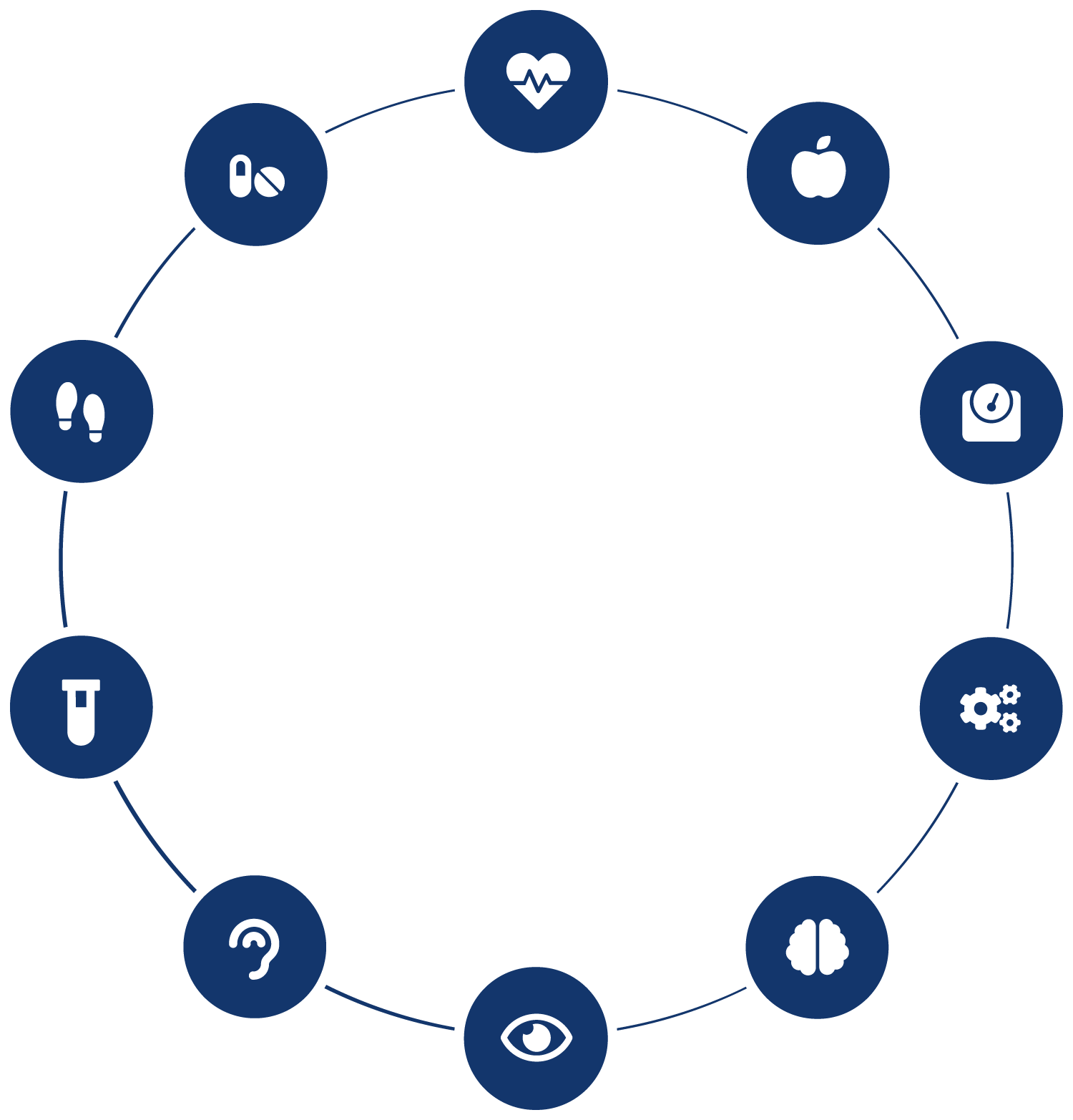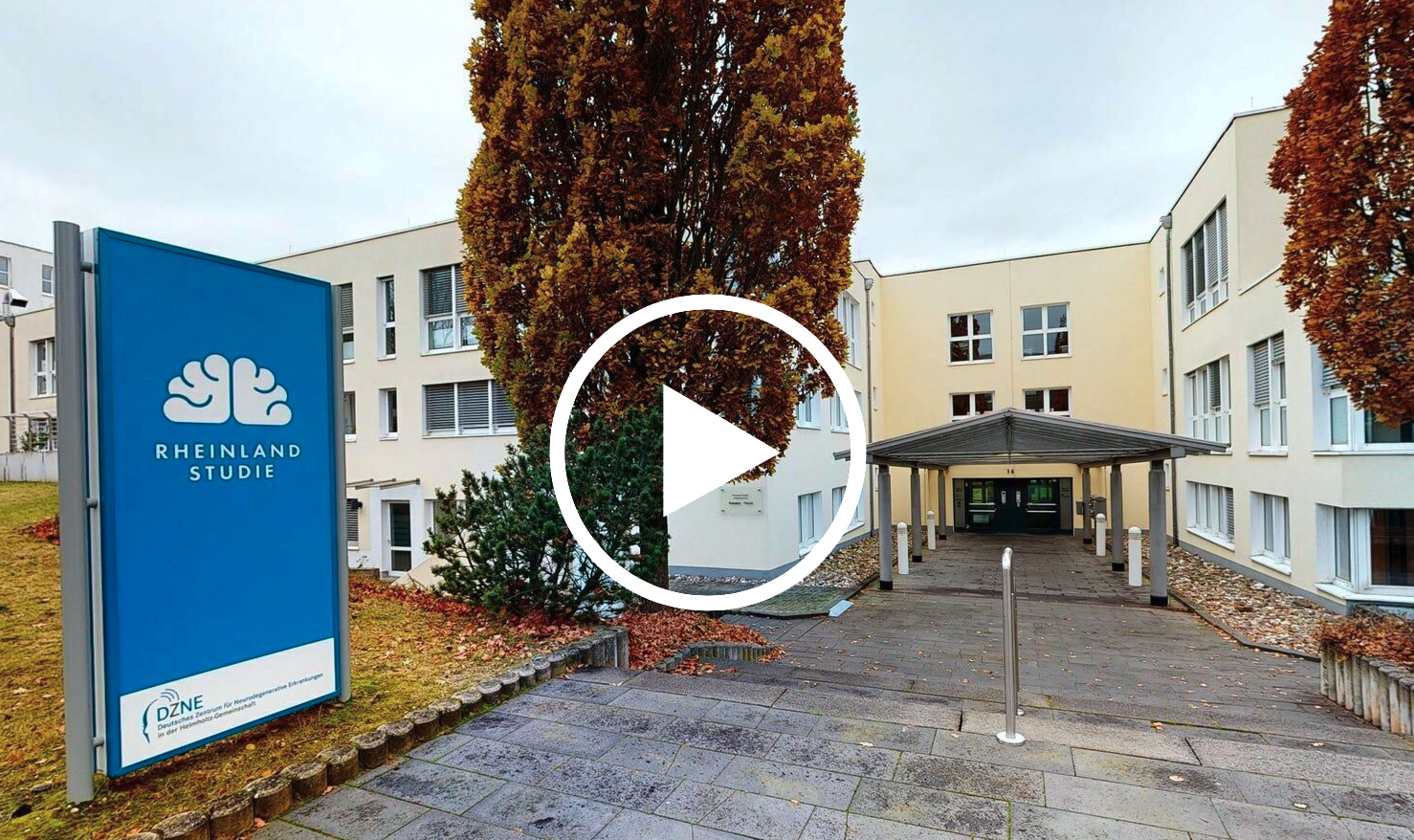The Rhineland Study team involves experts from a wide range of disciplines. Together they investigate the complexity of human health in order to gain important insights into promoting health. Trained study assistants conduct a whole range of examinations in the study centres: e.g. neurological examinations, examinations of the sensory organs (eyes, hearing) and brain structure and function using magnetic resonance imaging (MRI).
Examination Procedure
Focus on health
Examinations
What exactly is the examination of microcirculation? How is a gait analysis done and how is the grip strength of the hand measured? These examinations provide valuable information to help answer our research questions. Click on the icons to learn more about the individual examinations:

You can also read details about the examinations in our participant document (in German).
To get a better idea of what to expect, you can also take the virtual tour of our examination centre to learn more about the centre and the individual examinations:

YOU CAN RECEIVE THE FOLLOWING EXAMINATION RESULTS
| EXAMINATION | FEEDBACK OF EXAMINATION RESULTS |
| CARDIOVASCULAR EXAMINATION | Blood pressure |
| BODY MASS, BODY COMPOSITION | Height, weight, body mass index, waist circumference, waist-to-hip ratio, body fat, body mass, skeletal muscle mass |
| BIOMATERIALS COLLECTION | Blood analysis: red/white blood cells, platelets, platelet dye, haematocrit, insulin, glycohemoglobin, triglycerides, total, HDL, LDL cholesterol, C-reactive protein, cystatin C, total/bilirubin, direct bilirubin, alanine, aspartate-amino transferase, glytamyl transferase Urinalysis: red/white blood cells, protein |
| PHYSICAL ACTIVITY AND FITNESS | Results of the actimeter: overview graph of distribution of activities over the course of the day (percentage distribution sitting or lying down, walking, standing), relative activity index (time course of activity over the days of measurement), recommendations Average grip strength |
| EYE EXAMINATION | measured glasses, measured refraction, measured visual acuity, Measured value of intraocular pressure |
| HEARING EXAMINATION | Hearing tests |
| RISK SCORE FOR METABOLIC SYNDROME | Combined measurement of different variables (e. g. age, cholesterol HDL, glucose level, blood pressure) |
| CLINICAL NEUROLOGICAL EXAMINATION, GAIT, STANCE ANALYSIS, SENSE OF SMELL | Sense of smell: number of correctly recognized odour samples |
If it is recommended to consult a doctor due to a test result or an accidentally discovered finding, we will explicitly point this out to participants.